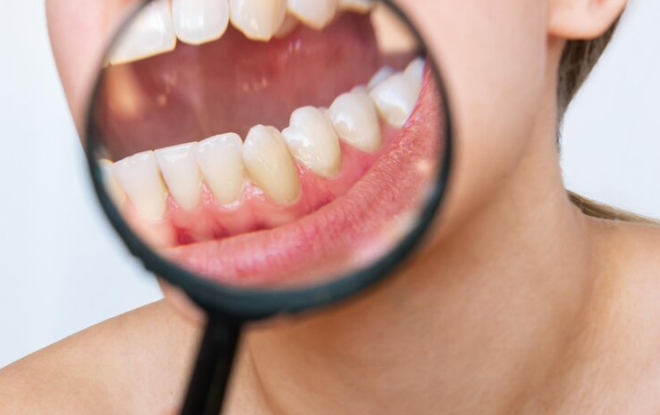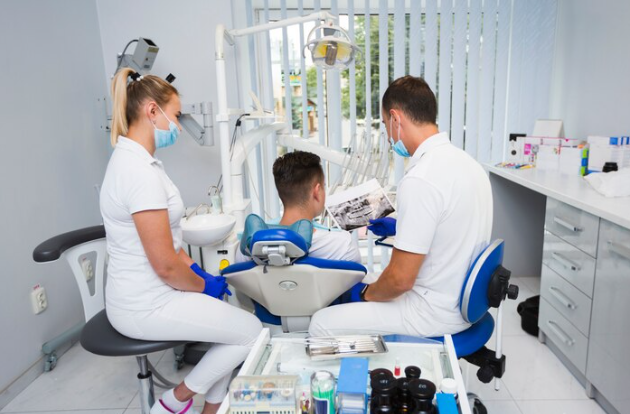
You brush. You floss. You skip candy. So why are your teeth still getting cavities?
Here’s the twist: it might be your so-called “healthy” diet. Some of the foods that sound good on paper—granola, dried fruit, even certain smoothies—can quietly do a number on your teeth. Tooth decay isn’t just about sugar bombs like soda and candy bars. It’s also about how often you snack, how sticky your food is, and what your mouth goes through after you eat.
Most people don’t connect what’s on their plate to what’s happening with their teeth. But your diet plays a bigger role in dental health than you might expect. In fact, some everyday foods are sneakier than you’d think when it comes to feeding cavity-causing bacteria.
If you’re wondering what else could be messing with your mouth, you’re not alone. Let’s break down the unexpected food choices that could be quietly working against your smile—so you can eat smart and keep your teeth in check.
What are some surprising foods that can contribute to tooth decay?
Several surprising foods can contribute to tooth decay, even though they seem healthy or harmless. Here are some examples:
- Dried Fruits: While packed with nutrients, dried fruits like raisins, apricots, and cranberries are sticky and tend to cling to teeth, allowing sugar to linger on the surface and feed decay-causing bacteria.
- Citrus Fruits: Oranges, lemons, and grapefruits are acidic, and while they are rich in vitamin C, their acidity can erode tooth enamel over time, making teeth more vulnerable to decay.
- Granola Bars: Many granola bars contain added sugars and sticky ingredients that can adhere to teeth, providing a food source for harmful bacteria and promoting plaque buildup.
- Smoothies: Store-bought smoothies often contain high amounts of sugar, and the consistency can leave sugary residues on teeth. Even homemade smoothies with added sweeteners or fruits can contribute to tooth decay if consumed frequently.
- Potato Chips and Crackers: These starchy snacks break down into sugars in the mouth, which can contribute to plaque buildup. If they stick to the teeth, they provide a long-lasting food source for bacteria.
- Bottled Fruit Juices: Fruit juices, especially those with added sugars, are acidic and sugary, contributing to enamel erosion and decay when consumed in excess.
Awareness of how these seemingly healthy foods can impact dental health is important for maintaining strong, cavity-free teeth. Regular brushing and proper oral hygiene can help mitigate their effects.
How do acidic foods affect the health of your teeth?
Acidic foods can negatively affect the health of your teeth by weakening and eroding the enamel, which is the outer protective layer of your teeth. Enamel acts as a barrier against cavities, tooth sensitivity, and wear, but when exposed to acids from foods like citrus fruits, soda, wine, and certain fruit juices, it can begin to break down over time.
The acids in these foods soften the enamel, making it more vulnerable to wear and decay. Repeated exposure to acidic substances can lead to thinning enamel, increased tooth sensitivity, and a higher risk of cavities.
Additionally, as the enamel erodes, the underlying dentin becomes more exposed, making teeth more susceptible to damage, discoloration, and tooth decay. To protect your teeth, it’s important to limit acidic food intake, rinse your mouth with water after consuming them, and wait at least 30 minutes before brushing to avoid further enamel wear.
Are sugar-free snacks always safe for preventing cavities?
While sugar-free snacks may seem like a safe alternative for preventing cavities, they are not always entirely free of risks for your dental health. Here are a few considerations:
- Artificial Sweeteners: Many sugar-free snacks contain artificial sweeteners like aspartame, sucralose, or sorbitol. While these do not contribute to tooth decay like regular sugar, some sweeteners can still cause digestive issues or a dry mouth, reducing saliva production. Saliva is essential for neutralizing acids in the mouth and washing away food particles, so reduced saliva flow can lead to an increased risk of cavities and other oral health issues.
- Acidity of Sugar-Free Snacks: Although sugar-free snacks lack sugar, they can still be acidic, contributing to enamel erosion. For example, sugar-free candies or citrus-flavored snacks may still harm tooth enamel due to their acidity.
- Sticky or Hard Textures: Many sugar-free snacks, such as sugar-free gum, mints, or candies, can still be sticky or hard. These textures can trap food particles in your teeth, leading to plaque buildup if not properly cleaned. If plaque is not removed through regular brushing and flossing, it can lead to gum disease and cavities.
While sugar-free snacks can be a better option than sugary ones, they are not always completely safe to prevent cavities. Please pay attention to their acidity, texture, and any potential effects on saliva production to ensure they do not contribute to other dental issues. Regular oral hygiene, including brushing, flossing, and visiting your dentist, is key to maintaining cavity-free teeth.
Can healthy foods still cause tooth enamel erosion?
Even healthy foods can contribute to tooth enamel erosion if consumed excessively or without proper oral care. Some nutritious foods that are acidic, sticky, or high in natural sugars can still impact enamel over time. Here are a few examples:
- Citrus Fruits: While high in vitamin C and antioxidants, citrus fruits like oranges, lemons, and grapefruits are highly acidic. Frequent consumption can soften the enamel, making it more vulnerable to wear and decay.
- Tomatoes: Although tomatoes are rich in vitamins and nutrients, they are also acidic. When consumed regularly, the acid in tomatoes can erode tooth enamel if proper oral hygiene isn’t maintained.
- Dried Fruits: Dried fruits like raisins, apricots, and cranberries may seem like healthy snacks, but they are sticky and high in natural sugars. These sugars can cling to teeth, feeding bacteria and contributing to plaque buildup, leading to enamel erosion.
- Smoothies: While smoothies made with fruits and vegetables provide many health benefits, they can also contain high amounts of sugar (even natural sugars from fruit) and acidity. If not properly rinsed or brushed afterward, they can contribute to enamel erosion.
- Vinegar-Based Dressings: Some healthy salads include vinegar-based dressings, which are acidic and can contribute to enamel wear when consumed frequently.
To protect your enamel, rinse your mouth with water after consuming acidic or sugary foods, wait at least 30 minutes before brushing your teeth (to avoid further enamel damage while it’s softened), and maintain a regular oral hygiene routine. Moderation and awareness of how certain foods affect your enamel are key.
Discover Which Foods Could Be Causing Tooth Decay
At Gentle Touch Family Dentistry, we understand tooth decay isn’t just caused by sugary snacks. Many seemingly healthy foods, such as dried, citrus, and even granola bars, can contribute to enamel erosion and cavity formation.
Our team is dedicated to helping you identify the foods that may affect your dental health. We offer expert advice on maintaining a balanced diet that supports strong, cavity-free teeth.
Contact us today to schedule a consultation and learn more about how your diet impacts your oral health and what steps you can take to protect your smile!



